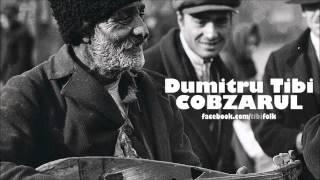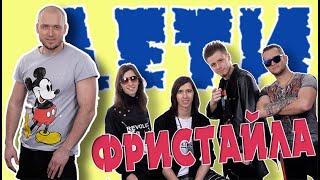![Смотреть Stalin: The Court Of The Red Tsar -- Simon Sebag Montefiore [Deep Dive Book Review] [CC] Stalin: The Court Of The Red Tsar -- Simon Sebag Montefiore [Deep Dive Book Review] [CC]](https://invideo.cc/img/full/a28zUWx4UmMtYmQ.jpg)
Stalin: The Court Of The Red Tsar -- Simon Sebag Montefiore [Deep Dive Book Review] [CC]
Комментарии:

Very good review.
Ответить
Just one doubt. Are you reading out from a computer screen?
Ответить
It's kind of a tabloid biography.
Ответить
I loved this book when I was a kid. Young Stalin is also great, by the same author.
Just a note, though. We intentionally(and mistakenly) surrendered vast swaths of territory in Germany and easy of Germany to the soviets. Wasnt much of a race.

Thanks for this, broseph stalin
Ответить
The strength of this book is that it shows how Stalin consolidated power and outmaneuvered the other Bolsheviks on the way to absolute power.
Admittedly this is not the first biography of Stalin that someone should read. Better to start with Robert Conquest and Robert Service.

In the early 2000s, when this book was published, much of the information was previously unknown. The intermittent opening of the archives in the post Soviet period has been a boon to study of Soviet history.
In 1991, I took undergrad courses in the history of the Russian revolution and “USSR 1939 to present” (lol, it was 91….USSR dissolved at the end of the semester I took that course IIRC)
20 years or so after publication of this book, the info is old hat.
I think of this book much like Toland’s Bio of Hitler. It assumes the reader has working knowledge of the subject, and conducts a deep dive into the personal aspects of Stalin’s life.
At the time of publication, the revelations were still somewhat “new.”

Were you looking for a intellectual psychological analysis of a criminally minded mass murderer? Not possible. The criminal and he was a criminal first fits no mold.
Ответить
Elon Musk couldn’t bear 🐻 to finish this book; it was too… Dark for him, he said, in an interview video
Ответить
It is a book which requires a basic knowledge of Soviet history. The shortcomings mentioned by the reviewer in this video are not shortcomings at all. Save this book for when you already know the basics.
Ответить
I read this book because I am fascinated with dictators, the methods they use to consolidate and hold on to power and the people they chose to keep around them (strengths, weaknesses, idiosyncrasies, etc). If you read it for that reason you will enjoy it as much as I did. If you are hoping for more historical context then, as you stated, it would be best to start with another biography of Stalin that is wider in scope. Great review.
Ответить
Mike, thanks for tackling this book and posting your review. This comment is not to justify Stalin's actions. This author makes it clear that Stalin was, a by the book, Marxist (book - Das Kapital). Karl Marx stated that at the beginning of developing a communist society something came first: "The Dictatorship of the Proletariat." Stalin carried this "dictatorship" into a reign of Terror. In 1900 Russia was thought to be about the last nation in Europe that would become communist.
Ответить
This Author CLEARLY CONTRIBUTES MORE INFORMATION, THEN PREVIOUSLY KNOWN. Well done !! A coalition of psychopathies, diabolical murderers using marxism as a cover story as avenue to express their mental illness..Great inner insights ,,Witch. Trials on steroids.
Ответить
Have you since found a book that better covers the Soviet Union generally?
Ответить
You are always extremely interesting to listen to.
Ответить
Check out Steven Kotkin's Stalin. Definitive.
Ответить
To fully grasp Stalin’s logic, you need to look at the world through Stalin’s eyes.
Stalin was a run-of-the-mill Bolshevik who devoted himself to the destruction of the Russian Empire. He didn’t appear very bright to start with, but he had an extraordinary memory, and he was an eager learner. We don’t know his exact motivation. Yet we do know that he burned with an unwavering hatred of this patriarchal society, in which extreme inequality and poverty predominated.
Stalin worked with a lot of like-minded comrades who said “We know how to blow up this rotten place.” And unlike all our modern armchair Communists, they didn’t just talk—they actually did it. They seized power in 1917–1918 and went about building a classless society.
The first thing they did was to take the means of production from the hands of its owners, the capitalist class. Everyone armed with a weapon considered anyone richer than themselves to be capitalist parasites, and started taking away the bloodsuckers’ stuff. Houses, cars, wives, petty cash, all things bourgeois. Other people, naturally, objected. A civil war ensued in 1919–1920, and when the dust settled down, Russia was a country in ruins.
Stalin’s comrades kept quarreling between themselves. The big questions, such as “Who to blame?” and “What to do?” seemed to have more answers than there were comrades. (This always happens whenever radical Socialists discuss Socialism).
Being a true Bolshevik, Stalin could not passively watch the cause of Communism become stalled and compromised by his fractured, ineffectual comrades. He did what Lenin and Trotsky, and other classic thinkers of the movement had taught and practiced: a true revolutionary must never be hampered by the bourgeois notions of good and evil. A true Bolshevik must deliver. And Stalin was an exemplary Bolshevik.
Stalin took the formidable tools of victorious proletariat state — such as the secret police, revolutionary tribunals, prisons, torture chambers and firing squads,—and turned them against his quarrelling comrades. They all disappeared, one by one. After them went the rest of the old Russian urban class who might slip a word about how things had not been as bad as they were turning out to be under the Bolsheviks. Next went millions of peasants who objected to Stalin taking away their grain to finance his industrialization and armament program. Then went everyone who was not obedient or quick enough to obey Stalin’s orders.
That’s how the Soviet Union, that magnificent monolith of proletarian might, emerged as the entire world came to know it. That’s how USSR crushed Hitler and sent the first man in space. Does anyone truly think the USSR could have achieved this if it had not been for the effectiveness (detractors call it “brutality”) of Stalin?
The Chinese, Korean, Yugoslav, Albanian, Cuban, Kampuchean, Vietnamese comrades watched and learned. They managed to replicate this success. What can be more convincing to practitioners of social change than a method that can be replicated?
The crucial lesson of Stalin’s rule is this: Next time your well-intentioned, university-educated, herbal-tea-soaked SJWs tell you they know a better way to the just and equal society, don’t listen. They have no clue. They never get anything done. They’re just windbags with a rich vocabulary.
The only way to the radical social change is the Bolshevik way. They say “brutality,” Communists say “resolve.”
“Take the heat or get out of the kitchen.” (Karl Marx). The choice is yours.
—- i’m kidding. it’s not Karl Marx

Communism struggles with the remarkable fact that this collectivist ideology only seems to work for people who believe in individual salvation and personal responsibility.
Communism is basically two things:
No private property. You share with other people the tools, land, trees, ideas, cars, works of art that make your living.
You contribute to the common pot what you can. You get out of the pot what you need.
The idea sprang from Christian monasteries. Monks worked in silence and, amid the prayers, had plenty of time to introspect. Many came to ask themselves and everyone around: why can’t the whole of humanity live the same pious, quiet, and spiritual lifestyle as us? There will be no wars, no angry people, no famines, no suffering.
Scientific Communism
Then came Marxists with a very practical answer: we can make it work if we mandate everyone to give up their private property. Everyone will work for everyone’s salvation. To top it, no one will need to die to get Communist salvation. It will all happen in this world, not the next one!
In the 20th century, Communists managed to organize themselves and grab power across much of the world. They met much resistance but ultimately overcame it. The largest and the most populous countries in the world even became a clear and present danger to the most prosperous and strong Capitalist countries. The bourgeois scum got the scare of their lives!
Selfishness pays
One problem kept popping up. Humans are shaped by evolution to be a bunch of lazy, selfish, sneaky predators. It takes the fear of pain, starvation, and death to get us off our idle behinds and make ourselves useful. There is also a tiny minority of people who are driven by curiosity, vanity, and the desire to make a difference. But they are a maddeningly selfish bunch, too. They prefer to do their own stuff and object strongly when other people tell them what to do.
There’s also a powerful, unselfish thing called love. It can do wonders and prevail over everything. But the unselfishness of love makes it the most dangerous enemy of Communism: people eagerly sacrifice the common good for their kids, their lovers, their family, and their friends.
God or perdition
What on Earth can trump our (1) selfishness, greed, laziness, and (2) our loyalty to our loved ones?
There's only one thing that seems to be able to do that. It’s the love of God and faith in individual salvation.
This is what the tale of Abraham and the sacrifice of Isaac is about. For us common people, this means: God is willing to give us individual salvation if we are ready to betray our loved ones for Him. (In the USSR, we had a Communist rendition of Abraham’s Test: “Who do you love more, Soviet rule or your Dad?”)
Enforcement
The history of Communism shows that Marx's idea of the ideal society requires a degree of individual discipline and self-policing that no totalitarian society can ensure. You need a community of people who are obsessed with individual responsibility in the face of God. If you start mixing these pious creatures with lazybones, creeps, and men/women in love with each other, the latter ones get a ginormous unfair advantage. They will be piggybacking, leeching, and stealing for themselves wherever possible, while the self-sacrificing dimwits will be busting their backs to make everyone’s life better.
You may, of course, put the police, worker’s watchers, KGB operatives, and neighbor informants on the task of enforcing Communist morals. What happens next is the lazybones, leeches, and thieves use every trick in the book to become the enforcers. This is exactly what happened everywhere, from Soviet Russia through the Red Khmer’s Kampuchea to the Chavista Venezuela.
Conclusion
The upshot to the story: you may make Communism work, in some places, for some time. To achieve that, you need
People who believe in individual responsibility before God or History
A wall between them and people who don’t believe in God/History
Preferential arrangements from the government in terms of property protection and economic incentives. On even terms, greedy people always outcompete selfless people.

Let’s talk about that 20 million statistic because it can shed some light on propaganda in history.
Now first, Stalin was a very bad person. He was cruel, sociopathic, deeply selfish, often insane, and he tormented his own people as well as countless others. He has earned his spot among the worst people in history.
That said there was an effort to demonize Hitler in the US and the West as a whole. From this anti-socialist crusade, we get the “20 million” statistic.
The book that gave us the “Stalin killed 20 million” statistic is titled “The Black Book of Communism” and it was published in 1997.
Right off the bat anyone on the far right, including Fascists and Nazis, loved this number. It meant Stalin killed more people than Hitler which of course means socialism is worse than Fascism.
The problem though is that this book is propaganda more than history. The book's goal is to compare communism and Nazism and make communism look worse. The book has been found to
Manipulate data
Exclude crucial details
Wildly overestimate some statistics
Wildly underestimate other statistics
2 of the historians involved in the cook (Werth and Margolin) both accused Courtois of being obsessed with reaching “100 million killed by socialism” and that Courtois’s scholarship was sloppy at best.
So how many people did Stalin kill?
Well here is the difficultly- what counts? With Hitler it’s easy. The SS (under his direct command) constructed and then used extermination camps in an effort to eradicate Jews.
With Stalin though it is tricky. Of all the major events leading to mass deaths under Stalin’s rule, the largest are famines. Is Stalin to blame for the famine? It’s like blaming Trump for COVID. Sure we can say Trump made it worse, but it isn’t his fault a global pandemic sprang up.
So let’s see what the numbers show
The Great Purge, 900,000 killed
Operation Lentil, 144,704 killed.
Note there are lots of “forced deportation”. This is where Soviet forces show up in a region and forcefully move the population elsewhere. These were “unwanted” groups and were basically forced to leave their homes and lives behind with the clothes on their back. They were often starved or killed in the process of deportation and left on the very worst pieces of the land the USSR had to offer.
Deportation of Tatars, 50,000 killed
Kulak Deportations, 500,000 killed
Deportations of Estonians, Germans, Poles, Balts, and Ukrainians 309,521 killed
Deaths in Gulags, 1.053,000 killed
I am uncomfortable with this one a bit just because many people were sent to the Gulag for justified reasons. However, there were many innocent people sent there so it's worth attributing to Stalin's reign of terror.
German civilians killed from deportation, forced labor, or war crimes by the USSR, 600,000 killed
150,000 killed during 1945 campaign
450,000 killed in Soviet prison camps
German POWs, 1,000,000 killed
Total: 4,557,225
That’s it- those are all the intentional deaths. Some of them are not super clean cut but I think we can attribute these to Stalin and the government he ran.
Now we get to the confusing bit- the famines. A famine is not the game as a genocide. In a genocide there is intent- there is a desire and specific actions taken to bring about the murder of people. A famine is a disaster. Famine may be accidental or caused by the weather.
A bad economic policy that leads to famine is not as morally evil as an intentional military policy of “hunt and kill all the _ people”. Does that make sense?
Here are the famines
Soviet Famine of 1932–1933: 6,000,000 deaths
Holodomor: 4,000,000 deaths
Soviet Famine of 1946: 1,000,000 deaths.
Kazakh Famine: 2,000,000
So if we include the famines Stalin can be blamed for 16,557,225 deaths roughly.
However, I do not think that is fair. There is considerable debate over what caused these famines and if they were directly Stalin's fault. Most often, Stalin is blamed for the Holodomor but not the other 2. The famine of 1946 for instance was directly due to how ravaged the USSR had been by Germany during the prior years.
I tend to agree that Stalin should be blamed for the Holodomor and the Kazakh famine as there is strong evidence these were intentional at least to some degree. Thus 4 million dead in the Holodomor plus 4.557,255 killed in various atrocities plus 2 million dead in the Kazakh famine brings us to 10,557,255.
I think we can 100% blame Stalin for about 4,000,000 deaths- past that it’s all debate.

![Stalin: The Court Of The Red Tsar -- Simon Sebag Montefiore [Deep Dive Book Review] [CC] Stalin: The Court Of The Red Tsar -- Simon Sebag Montefiore [Deep Dive Book Review] [CC]](https://invideo.cc/img/upload/a28zUWx4UmMtYmQ.jpg)
























